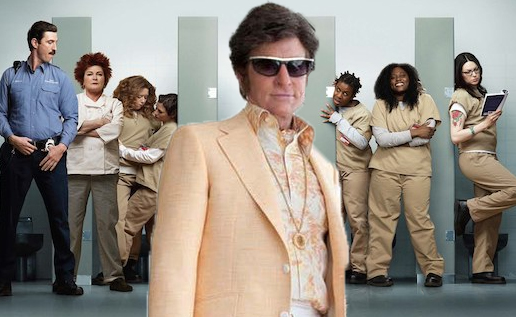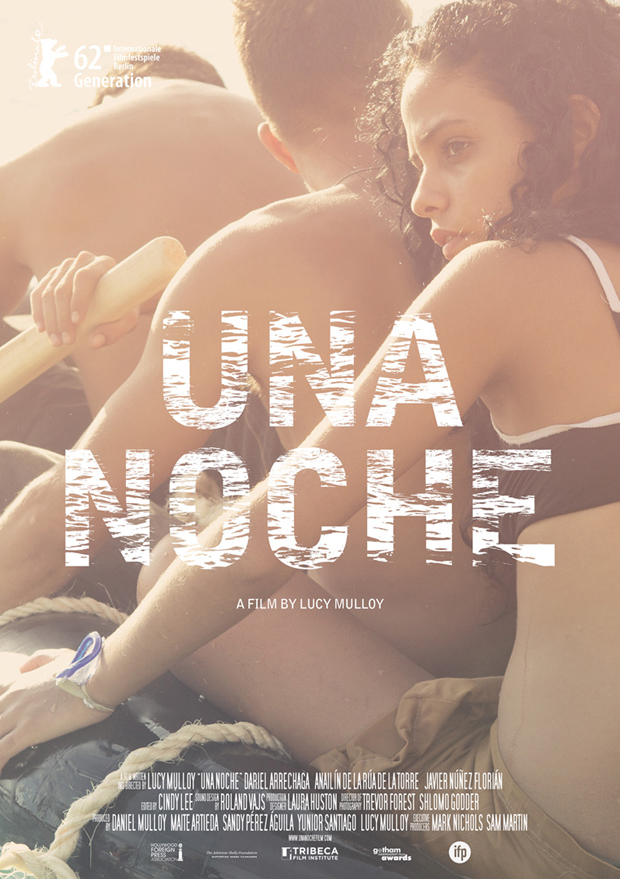Glenn here. I read an article the other day at IndieWire asking "why don't LGBT movies make money at the box office anymore?" It's a worthy question to ask since I know I'd love for films focusing on "our" stories to be more prominent in cinemas and the only way to get that is to receive the backing of Hollywood and audiences. What I don't think is that there's anything insidious going on in the seeming rapid decline in mainstream representations of LGBT characters on the big screen. It's not like film audiences have gotten more homophobic with time, right?
My biggest theory is one that the article only flirts with: that gay culture itself has become so mainstream that the idea of paying $15 for a dash of it is rather unnecessary. And as the article wisely states, television has been more than willing to take up the baton of telling complex, romantic, tragic, funny, and unique stories about gay characters. And it's cheaper, too. That medium has certainly come a long way from the days of advertisers cancelling their marketing on Ellen less than 20 years ago!
 Is LGBT the new black... on TV?
Is LGBT the new black... on TV?
Gay TV and two new gay-centric films after the jump
This year alone audiences have been given Steven Soderbergh's Behind the Candelabra and Orange is the New Black. Add Video-on-Demand, DVD, Netflix and other home entertainment options, why would you need to go to the movies? The new global world we live in has made LGBT cinema less exotic and excitingly taboo. They're like foreign films in that regard: with access to so much of a culture, the need for it has all but vanished. It's a catch 22. And until a Hollywood producer and studio are willing to go to bat for a mainstream gay film like Brokeback Mountain or Milk or there's an out of the blue water cooler sensation like The Crying Game it's hard to see much changing.
All this was a very roundabout way of bringing me to two new LGBT-focused features. Kill Your Darlings isn't out for a while so we won't discuss it much (although it's screening at TIFF and Venice), but I will say that it's very open about its homosexuality and that's a good thing. What's not so good is the way director and co-writer John Krokidas so frequently inform us that Allen Ginsberg (played here by a fine Daniel Radcliffe) and his team of beatnik collaborators like Jack Kerouac and William Burroughs thought outside the box and were revolutionary to their craft and yet the film is as stock standard as they come. It's a traditional biopic through and through and lacks the sizzling energy of last year's On the Road. And then it doesn't even involve his most famous work, Howl. Hmmm.
 Thankfully there is Lucy Mulloy's Una Noche. It's opening this weekend in very limited release (New Yorkers can catch it at IFC or Lincoln Plaza) and is a beautifully made film about the plight of refugees that could easily be misconceived as exotic poverty porn, but which utilises its energetic verve with precision and tenderness. There is a homosexual element here, although it's not the raison d'être of Mulloy's film. Still, it adds a unique and vital human aspect to a film that deals with people who many in society consider expendable, disposable, and inconsequential. Una Noche is one of the best films of the year and if there was any movie god out there it would endure the same rapturous response that greeted, say, City of God. Except, unlike that movie, Una Noche keeps the violent male thuggery to a minimum so it's unlikely to replicate that surprise Oscar-nominee's success.
Thankfully there is Lucy Mulloy's Una Noche. It's opening this weekend in very limited release (New Yorkers can catch it at IFC or Lincoln Plaza) and is a beautifully made film about the plight of refugees that could easily be misconceived as exotic poverty porn, but which utilises its energetic verve with precision and tenderness. There is a homosexual element here, although it's not the raison d'être of Mulloy's film. Still, it adds a unique and vital human aspect to a film that deals with people who many in society consider expendable, disposable, and inconsequential. Una Noche is one of the best films of the year and if there was any movie god out there it would endure the same rapturous response that greeted, say, City of God. Except, unlike that movie, Una Noche keeps the violent male thuggery to a minimum so it's unlikely to replicate that surprise Oscar-nominee's success.
I could go on about Una Noche because this examination of youth culture in contemporary Cuba is rich and pulsates with the rhythm of Havana's streets. I spoke to the director (pictured below with myself) at an event here in New York and when I mentioned how great I thought the sound design was with its weaving, layered soundscapes she excitedly introduced me to the sound designer who just happened to be there too! It was super cute. In the post-film discussion I enjoyed the British director's tale of how she was inspired by a real story she heard (one far more grim than what's in the movie), how her actors deflected to the US after production, and how she added the gay element after noticing the extreme homophobia during local casting. When I asked how the young cast took to the story's homosexual elements she paused and said "They got used to it", to hearty laughs from the crowd.

Una Noche won't be breaking any records at the box office, but no matter the financial return it does make another wonderful addition to the hall of great LGBT cinema. The film is American-funded so there won't be any Oscar foreign film nominations down the line to get people's attention, but hopefully they get to see it whether it's in the cinema, on VOD, on DVD/Blu-ray or on Netflix. And in the end that's the important thing.